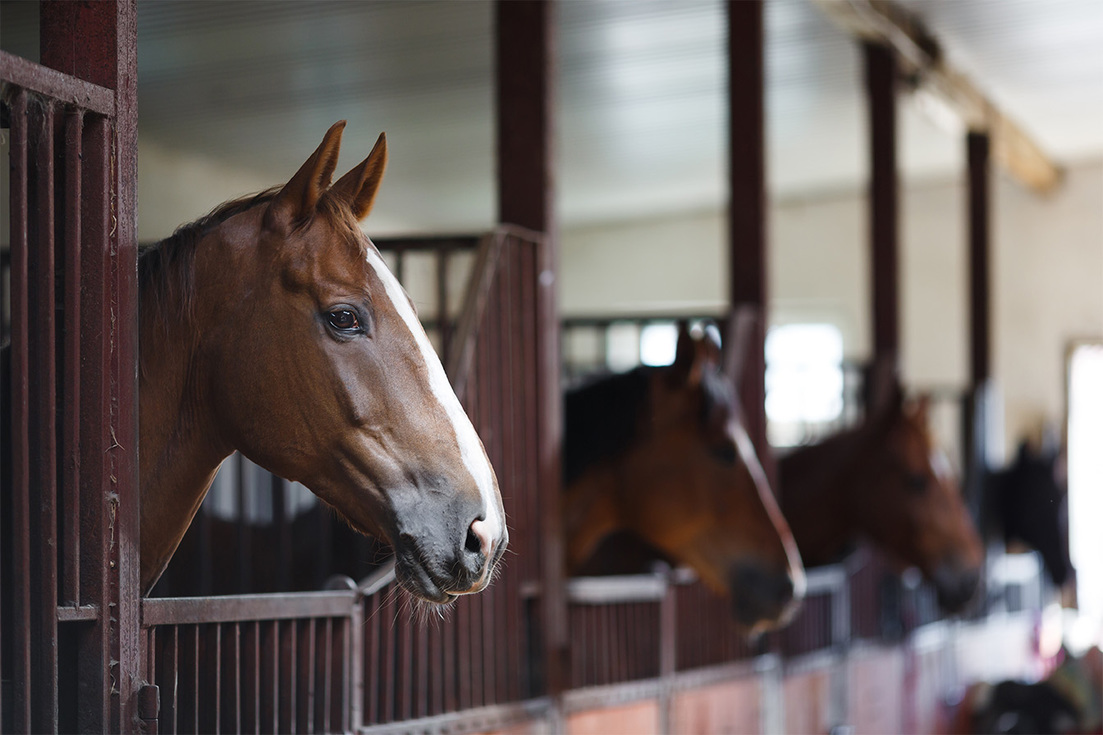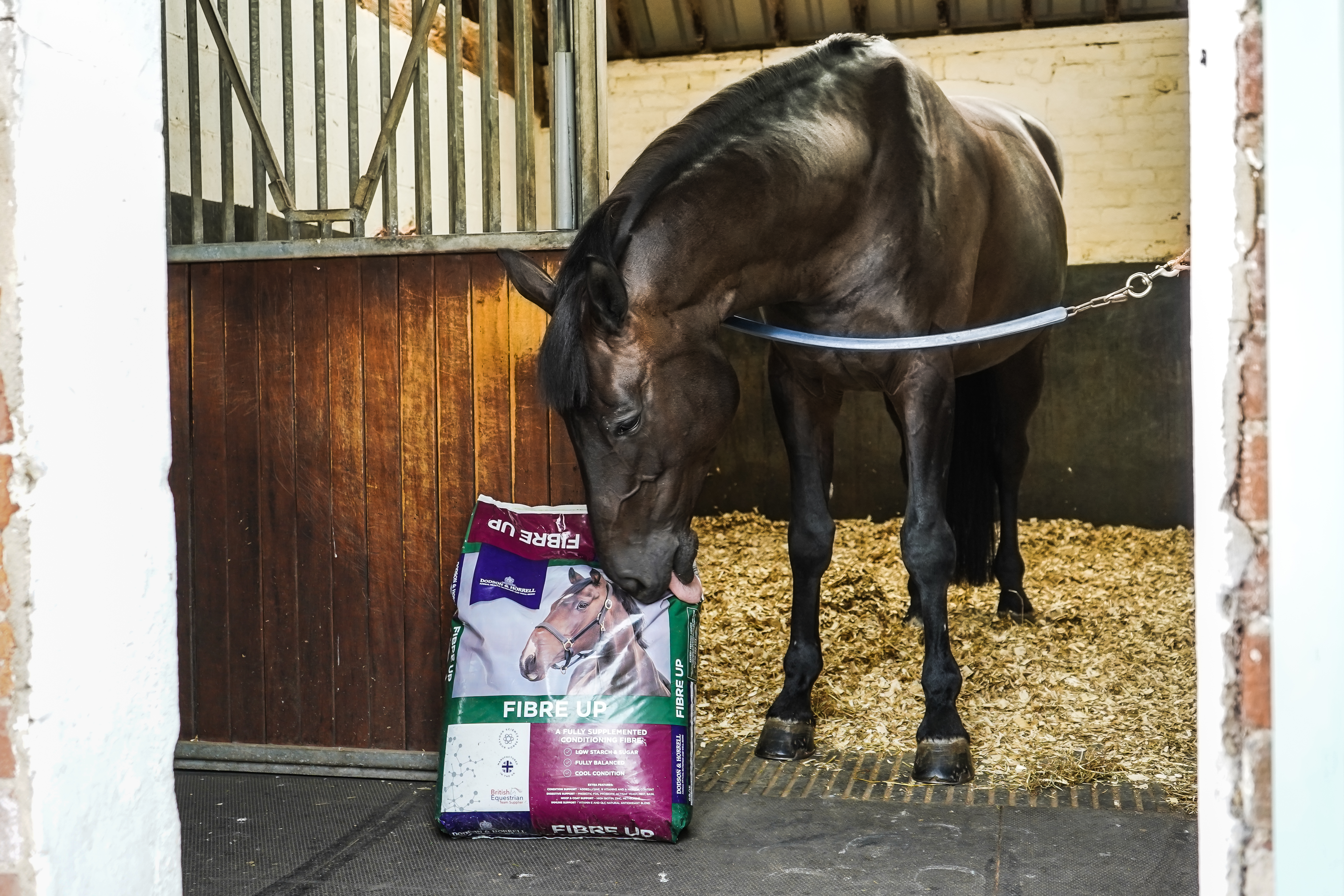With winter well and truly underway, and a complete change in many horses’ routines, it can be a prime time for ulcers to start causing havoc. Gut ulcers in horses are often brought on as a result of additional stress caused by changes in routine, as well as other factors including bacteria and non-steroidal anti-inflammatory drugs (NSAIDs). When stabling horses in winter, it is incredibly important to ensure they have access to forage at all times, encouraging natural trickle feeding behaviour and protecting the stomach walls from stomach acid.
Types & Causes of Gastric Ulcers
Equine Gastric Ulcer Syndrome (EGUS) is the generic term used to describe the ulceration of the horse’s stomach lining. There are several different diseases that cause this damage:
- Equine Glandular Gastric Disease (EGGD)
- Equine Squamous Gastric Disease (ESGD)
- Gastroesophageal Reflux Disease (GERD)
- Peptic Ulcer Disease (PUD)
This is why it is so important to obtain a veterinary diagnosis (usually via endoscopy) before treating your horse for gastric ulcers, as it depends on where the ulcers are as to the solution.
Horses diagnosed with ESGD often have similar contributing factors: low forage intake, high-intensity exercise and high starch/sugar diets. During high-intensity exercise, the gastric acid splashes upward, reaching the unprotected squamous mucosa and so causing gut ulcers in horses.
Horses diagnosed with EGGD have symptoms that are often brought on by: NSAIDs, bacteria in the gut, or stress. This stress can be caused by many different factors, including travelling, a change in environment, a change in routine, competition and more.
Managing Horses with Gastric Ulcers
Before we look at the types of feed that are best for feeding horses with gastric ulcers, there are some lifestyle changes that should be used to reduce the risk of gut ulcers in horses too:
- Access to forage at all times - horses produce twice the amount of saliva eating forage than eating concentrates, which helps to neutralise the stomach acid and works as a natural buffer.
- Reduce cereals in the diet – depending on the intensity of their exercise, try and choose a feed that provides the majority of calories from fibre and oil. If they require cereals to support fast-release energy (eg. show jumpers), finding a feed lower in cereals and splitting their daily ration between more meals is ideal.
- Provide daily turnout if possible - whilst this is difficult in winter, even a few hours of turnout a day can help.
- Feed fibre prior to exercise - to stop the acid sloshing around in the stomach, feeding a small amount of forage or chaff (alfalfa) can give the stomach a fibre barrier.
- Provide fresh water at all times - one of the golden rules of feeding, but if your horse is struggling to digest food, water needs to be on hand to help with the digestive process and reduce the risk of gut ulcers in horses.

Recommended Feeds for Gut Ulcers in Horses
Every horse is different, and if you are truly considering changing your horse’s diet then we would always recommend contacting our Nutritional Helpline as the first step. However, we do have some initial suggestions for horses struggling with gastric ulcers.
As we mentioned, swapping to a feed that is mainly fibre or oil-based will help - the D&H Elite Sport Muesli, ERS Cubes and Fibre Up are great examples of this. All of these feeds are scientifically formulated with an optimal balance of nutrients too, so will help improve the overall health of your horse. If you are wanting more all-round digestive, immune and herbal support then our Health Mash is the perfect solution and great addition to any complete ration. With a great digestive support package and loads of added herbs, it is ready to feed in just under 10 minutes too!
For further information on feeding horses susceptible or prone to gastric ulcers, please contact our nutritional helpline via our email helplineenquiries@dodsonandhorrell.com, by phone on 01270 782 223 or via our LiveChat.



